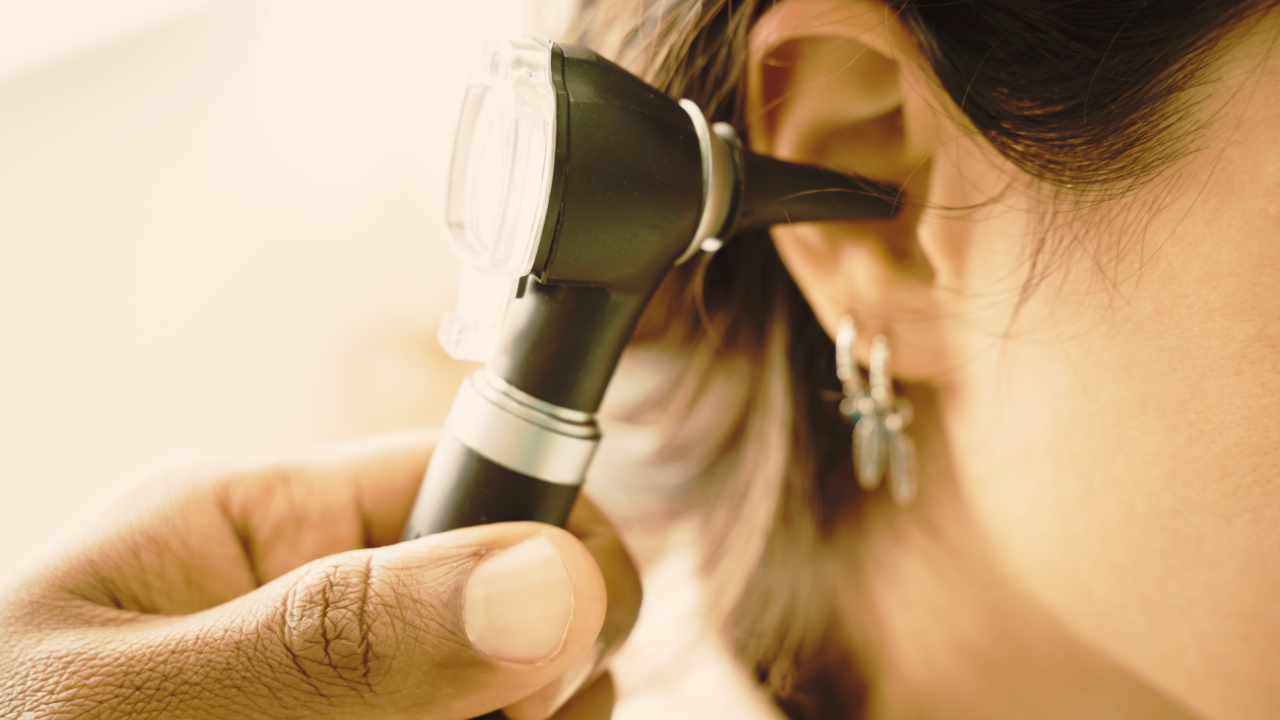
- 301
- 0
How to Recognize Gradual Loss of Hearing
Imagine sitting at your favorite cafe, chatting with friends, when you suddenly realize you’re struggling to follow the conversation. You brush it off as background noise, but the next time you attend a family gathering, you notice it again—voices seem a little muffled, and you’re asking people to repeat themselves more often. This is how gradual hearing loss can sneak up on us. It happens so slowly that many don’t realize their hearing is fading until the signs become hard to ignore. Recognizing this early is vital because it allows you to seek treatment in time and continue enjoying life fully.

In this blog, we’ll explore how to spot the signs of gradual hearing loss, its underlying causes, and when it’s time to consult a professional.
What Is Gradual Hearing Loss?
Gradual hearing loss, also known as progressive hearing loss, refers to a slow reduction in hearing ability over time. It can occur in one or both ears and affect people of all ages. Unlike sudden hearing loss, which happens instantly and can be quite alarming, gradual hearing loss is subtle and can be difficult to detect at first. However, catching it early can prevent further damage and improve the overall treatment outcome.
Signs and Symptoms of Gradual Hearing Loss
Here are some common signs that may indicate gradual hearing loss:
1. Difficulty Following Conversations
One of the earliest signs of gradual hearing loss is struggling to keep up with conversations, especially in noisy environments. You may notice yourself asking people to repeat themselves frequently or feeling like others are mumbling.
2. Turning Up the Volume
If you often find yourself increasing the volume of your TV, radio, or phone to higher levels than before, this could be a sign of declining hearing. This is often noticed by others around you who might point out that the volume is too loud for them.
3. Muffled Sounds

Sounds may start to feel muffled or unclear. Speech, music, and everyday sounds may no longer sound as sharp, which can lead to frustration and confusion when listening to conversations or sounds in your environment.
4. Difficulty Hearing High-Pitched Sounds
High-frequency sounds, like the voices of women or children, are often the first to become difficult to hear when gradual hearing loss begins. This may also include birds chirping or the ringing of a phone.
5. Ringing in the Ears (Tinnitus)

A common symptom of hearing loss is tinnitus, a persistent ringing or buzzing in the ears. While not everyone with hearing loss experiences tinnitus, it’s often one of the first signs that something is wrong with your hearing.
6. Struggling to Hear in Group Settings
Hearing loss often becomes more noticeable in social situations. Group conversations, especially in crowded or noisy places, can become difficult to follow. You might feel isolated or withdraw from social interactions because of this.
7. Fatigue from Listening
Feeling exhausted or finding it takes extra effort to listen could be an indication of gradual hearing loss. When hearing becomes more challenging, the brain must work harder to interpret sounds and comprehend speech, which can result in listening fatigue.
8. Missing Common Environmental Sounds
You might start missing everyday environmental sounds, like doorbells, alarms, or the rustling of leaves. This can affect your safety and awareness of your surroundings.
Causes of Gradual Hearing Loss
There are several factors that can contribute to gradual hearing loss, including:

1. Age-Related Hearing Loss (Presbycusis)
As people age, their hearing ability naturally declines due to changes in the inner ear. This is one of the most common causes of gradual hearing loss in older adults.

2. Noise-Induced Hearing Loss
Exposure to loud noise over time, such as from concerts, loud machinery, or headphones, can damage the delicate structures in the ear, leading to hearing loss. This type of hearing loss can happen gradually and is often preventable with proper hearing protection.
3. Genetic Factors
Some people are more prone to hearing loss due to genetic factors. If there is a family history of hearing problems, there’s a higher chance you may experience gradual hearing loss as well.
4. Ototoxic Medications
Certain medications, known as ototoxic drugs, can damage the hearing organs and lead to gradual hearing loss. These include some antibiotics, chemotherapy drugs, and high doses of aspirin.
5. Ear Infections or Blockages
Chronic ear infections, excessive earwax buildup, or fluid in the ear can also contribute to gradual hearing loss. These conditions can typically be treated with medical intervention, so early detection is important.
When to Seek Professional Help
If you or someone you know is experiencing any of the above symptoms, it’s important to seek help from an audiologist or healthcare provider. A hearing test can determine the extent of your hearing loss and identify any underlying causes. Some treatments, such as hearing aids or medical procedures, can help improve hearing and prevent further deterioration.
Tips to Protect Your Hearing
Even if you aren’t facing hearing issues now, taking precautions can help avoid future hearing problems. Here are some ways to safeguard your hearing:

- Minimize Exposure to Loud Sounds: Wear ear protection in noisy environments, such as concerts or construction zones.
- Lower the Volume: Keep the volume at a safe level when listening to music or other audio through headphones and speakers.
- Give Your Ears Rest: Step away from noisy surroundings from time to time to allow your ears to recover.
- Schedule Regular Hearing Assessments: Just like routine eye or dental exams, periodic hearing tests can identify early signs of hearing loss.
Conclusion
Gradual hearing loss is a widespread condition, but with early detection, it doesn’t have to drastically affect your life. Noticing early signs, such as struggling to keep up with conversations, increasing the volume, or feeling fatigued after listening, can help you recognize potential hearing issues. Seeking timely professional advice and adopting habits safeguarding your hearing can help you maintain your auditory health and improve your quality of life.
Comment
Check Your EGFR
***We Promise, no spam!






